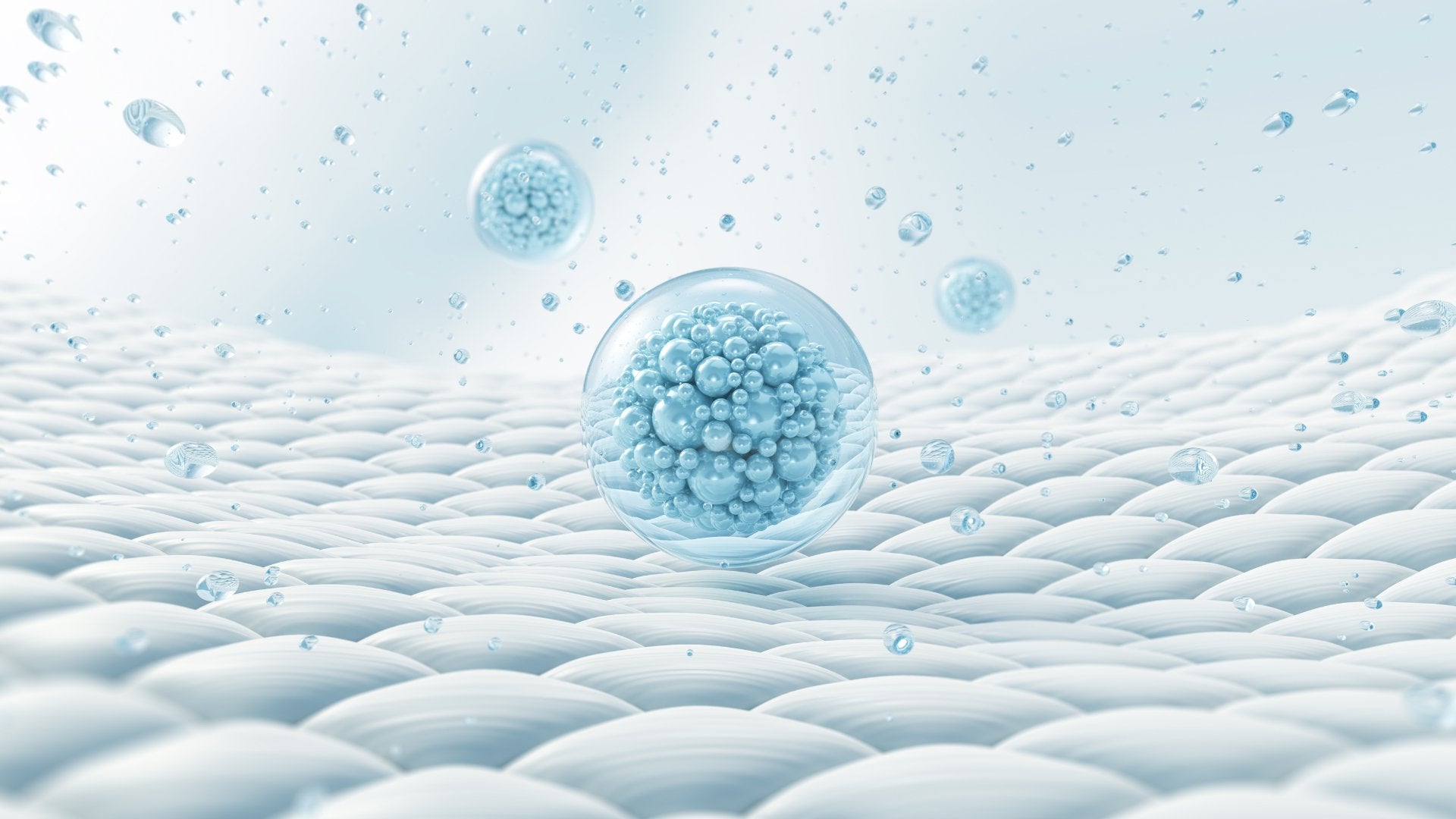Exosomes
Tiny Messengers, Transformative Impact
Exosomes are tiny extracellular vesicles released by cells that facilitate communication between different cell types. They carry a variety of bioactive molecules, including proteins, lipids, and nucleic acids, to deliver signals that can influence cellular behavior. Acting like natural delivery vehicles, exosomes play a significant role in regulating immune responses, tissue regeneration, and cell growth. Since exosomes are naturally biocompatible and can effectively deliver therapeutic agents, they represent a promising approach in regenerative skincare and anti-aging treatments, helping to rejuvenate and repair skin with precision.
Lyophilization
Lyophilized exosomes are a form of stabilized extracellular vesicles that have been freeze-dried to preserve their structural integrity and biological activity. This process removes water content while maintaining the exosomes' therapeutic properties, enabling long-term storage and easier handling without the need for cold chain logistics. Lyophilized exosomes can be reconstituted back into a solution upon addition of a specified liquid, making them a versatile and convenient option for research, therapeutic applications, and various biotechnological uses.

M-SEQNC Lyophilized Exosomes
Introducing the pinnacle of skin regeneration: Lyophilized Exosomes Derived from Human Umbilical Cord Mesenchymal Stem Cells (hUC-MSC). Our cutting-edge lyophilization process guarantees the stability and longevity of exosome activity. This nano-advanced product leverages the regenerative potential of exosomes, facilitating direct cellular communication to optimize skin health.

B-SEQNC Lyophilized Exosomes
Lyophilized Bioengineered Exosomes are a cutting-edge product designed to enhance cellular regeneration, tissue repair, and rejuvenation. Utilizing advanced bioengineering and lyophilization processes, these exosomes offer stability, high purity, and exceptional efficacy. Ideal for various therapeutic and cosmetic applications, they promote collagen synthesis, improve skin texture and tone, and reduce fine lines and wrinkles.
Comparison between Exosomes
M-SEQNC | B-SEQNC
Understanding the difference between our M-SEQNC Exosomes and B-SEQNC Exosomes
Human umbilical mesenchymal stem cells (hUC-MSC)
Bioengineered (non-human)
Promotes angiogenesis (formation of new blood vessels), which is crucial for skin repair and rejuvenation
Helps stimulate fibroblast proliferation and increase collagen production, aiding in wound closure and reducing scarring
Can help modulate the immune response by reducing pro-inflammatory cytokines, thus mitigating inflammation that can lead to skin damage or slow healing
Calm irritated skin through natural compounds like glycoproteins and amino acids
Enhance extracellular matrix remodeling to smooth wrinkles and restore youthful skin
Support skin elasticity by encouraging collagen and elastin production, which minimizes wrinkles and enhances skin texture
Exhibits positive outcomes in reducing healing time and improving the appearance of the skin
Antioxidant and antimicrobial properties can support faster healing of burns and ulcers by protecting the skin against infection
Obtained after birth without harm to the donor
Not applicable

